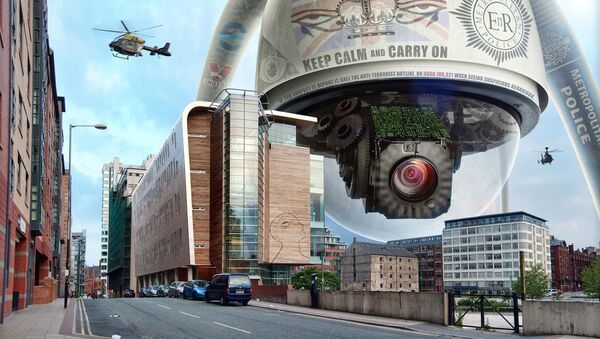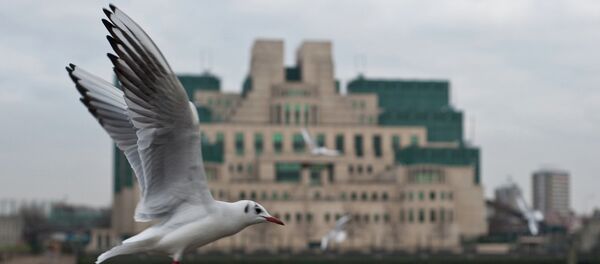"Actually, I don't think this bill will get through either Commons or Lords without judicial authorization… There's a new consensus on this right across the board — across the experts, across the spooks, across the parties, across both houses of parliament," Davis told the BBC.
Davis, who has defied his own party and campaigned alongside deputy Labour leader Tom Watson on the issue, dismissed suggestions that giving power to the judicial system would make the process less accountable.
"Every time I've asked a question of any minister on a security matter… they say 'we don't comment on security matters'. There is no accountability."
Labour officials have said that without judicial oversight the party won't support the investigatory powers bill — also known as the Snoopers' Charter — which many critics have described as simply a ploy to allow for greater governmental spying.
My snoopers' charter Tribune cartoon from last year #snooperscharter pic.twitter.com/Nh3Io0D9WI
— Gary Barker (@Barkercartoons) November 2, 2015
Lords Could Block Surveillance Plans
Former Liberal Democrat leader Lord Ashdown also weighed into the debate, telling Sky News that without proper safeguards, the House of Lords may also vote against the bill:
"This is precisely constitutionally the kind of bill within which we should be intervening if indeed the legislation is deficient."
However, others, such as Lord Carlisle, former independent reviewer of terrorism legislation and former Liberal Democrats MP, said it would be "glib" to give judges the power to award spying warrants, as many don't "have real understanding of national security."
Now Lord Carlisle says judges can't rule on surveillance because they aren't 'properly trained'. Wonder who he thinks should train them.
— Matt Wells (@MatthewWells) November 2, 2015
Lord Carlisle also called for the 'demonization' of British spies and police to stop.
The Home Office has already backed down on a number of contentious proposals, including plans to give police officers and security services access to the Internet browsing records of the general public.
Following the House of Lords vote against the decision to slash tax credits, it's thought that many in David Cameron's government are wary of drawing the ire of the general public and risking another embarrassing loss in the Lords.
Charter Reforms Merely 'Spin'
While the government has been quick to point out that it has backed away from the more controversial elements of the Snoopers' Charter, some activists aren't convinced, with Shami Chakrabarti, director of civil rights group Liberty, saying that the government's rhetoric is all part of a PR campaign.
"It's a traditional Home Office dance first to ask for the most outrageous, even impractical, powers, so that the smallest so-called 'concessions' seem more reasonable."
very important point that is being missed by many… #snooperscharter https://t.co/V8wrqOAHaB
— Glyn Moody (@glynmoody) November 2, 2015
"The frantic spinning distracts from the sleight of hand. Where is the judicial sign-off before our private communications can be collected, hacked and tapped?
"Where is the move back to targeted surveillance and away from the blanket collection of our private data?"




